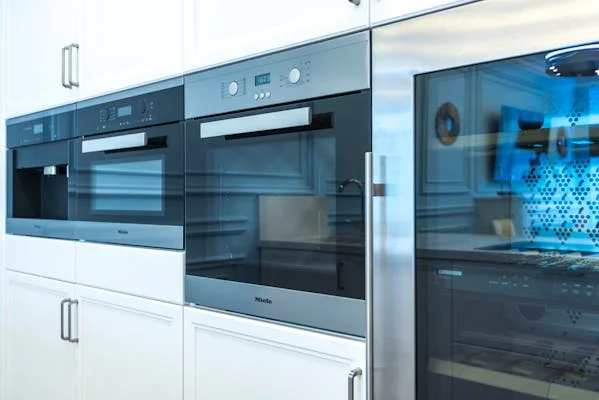In recent years, advancements in air technology have reshaped how we interact with and control the air we breathe. As global awareness grows about air pollution and its effects on health, new air technologies are creating cleaner, more breathable spaces indoors and outdoors. This article provides an in-depth look at the latest air technology innovations, their benefits, and how they’re changing the standards of air quality.
Why New Air Technologies Matter
Air quality directly impacts health, comfort, and productivity. Studies show that poor indoor air quality can lead to various health issues, including respiratory problems, headaches, and fatigue. As awareness of these impacts grows, industries, households, and even cities are investing in air technology to enhance the quality of indoor air and reduce pollution.
Key Innovations in Air Technology
Modern air technology has evolved to address specific pollutants and contaminants in innovative ways. Here are some of the most impactful technologies making a difference today:
Indoor Air Purifiers
Air purifiers are now a staple in many homes and offices. Using High-Efficiency Particulate Air (HEPA) filters, they can remove 99.97% of airborne particles such as dust, pollen, mold, and bacteria.
Features:
- Efficient filtration of particles as small as 0.3 microns.
- Quiet operation and energy efficiency.
- Suitable for homes, offices, and medical facilities.
UV-C Light Technology
UV-C technology uses ultraviolet light to kill bacteria and viruses in the air. It’s commonly integrated into HVAC systems and portable air purifiers, ensuring that harmful pathogens are neutralized before air is circulated.
Benefits of UV-C Light Technology:
- Kills bacteria, viruses, and mold.
- Reduces reliance on chemical cleaning products.
- Lowers the risk of airborne diseases.
Air Ionization Systems
Air ionizers release negative ions, which attach to positively charged particles like dust and allergens. This process makes these particles heavier, causing them to fall out of the air or get trapped in filters.
Advantages:
- Reduces allergens without filters.
- Energy-efficient.
- Can improve mood and reduce stress.
Advanced HVAC Filtration
Heating, ventilation, and air conditioning (HVAC) systems now come with enhanced filtration options, often using HEPA and activated carbon filters. These systems not only heat and cool air but also filter it for pollutants and odors.
Key Benefits:
- Improves overall indoor air quality.
- Reduces HVAC energy costs.
- Removes smoke, pet dander, and volatile organic compounds (VOCs).
Carbon Dioxide Reduction Systems
As buildings become more airtight to improve energy efficiency, carbon dioxide levels can rise, affecting occupants’ cognitive performance and well-being. CO₂ reduction systems help maintain optimal levels of carbon dioxide, particularly in crowded or enclosed spaces.
Benefits:
- Enhances concentration and productivity.
- Supports eco-friendly building designs.
- Reduces energy consumption by optimizing ventilation.
Benefits of Modern new air technologies
These advanced air technologies provide numerous benefits for personal and public health:
- Healthier Environments: Reduced allergens, bacteria, and viruses.
- Increased Productivity: Better air quality can enhance focus and energy levels.
- Energy Efficiency: Technologies that optimize air handling can reduce energy costs.
- Eco-Friendly Solutions: Advanced systems can reduce reliance on harmful chemicals and lower greenhouse gas emissions.
How to Choose the Right Air Technology for Your Space
When selecting air technology for a home, office, or public space, consider the specific needs of the environment:
| Technology | Best For | Key Features |
|---|---|---|
| HEPA Air Purifiers | Homes, medical facilities | High filtration efficiency |
| UV-C Technology | Hospitals, labs, schools | Kills bacteria and viruses |
| Air Ionization | Homes with pets, smokers | Reduces allergens and odors |
| Advanced HVAC | Commercial buildings, offices | Combines heating/cooling with air quality improvements |
| CO₂ Reduction | Schools, offices, enclosed spaces | Maintains optimal CO₂ levels |
Tips for Maintenance and Optimization
- Regular Filter Replacement: Many air purifiers and HVAC systems require routine filter changes for optimal performance.
- Professional Maintenance: Schedule regular maintenance for advanced systems like HVAC and CO₂ monitors.
- Proper Placement: Place purifiers where they can effectively circulate air, such as near vents or in high-traffic areas.
- Energy Management: Look for models with eco-modes or timers to reduce energy costs.
Conclusion
As air quality becomes an increasingly important factor in health and environmental sustainability, air technologies are proving essential in creating safe and breathable spaces. Whether it’s through high-efficiency filtration, UV-C light, or CO₂ reduction, these advancements are making a notable impact on our daily lives. How might air technologies improve the quality of air in your spaces.
FAQs about New Air Technologies
1. What are the main benefits of new air technologies?
air technologies improve air quality, reduce allergens and pollutants, enhance health and productivity, and support eco-friendly and energy-efficient practices.
2. How do HEPA filters work in air purifiers?
HEPA filters trap particles as small as 0.3 microns, including dust, pollen, and bacteria, providing cleaner indoor air.
3. Is UV-C light technology safe for indoor air purification?
Yes, UV-C light technology is generally safe when properly installed, as it neutralizes bacteria and viruses without emitting harmful chemicals.
4. What is an air ionizer, and how does it improve air quality?
Air ionizers release negative ions that attach to positively charged particles like dust, causing them to drop out of the air or be easily filtered, reducing allergens and improving air quality.
5. How often should I replace air purifier filters?
Most manufacturers recommend replacing HEPA filters every 6-12 months, depending on usage and air quality levels.
6. Are advanced HVAC systems worth the investment?
Yes, advanced HVAC systems improve indoor air quality while reducing energy costs, making them ideal for homes and commercial spaces.





